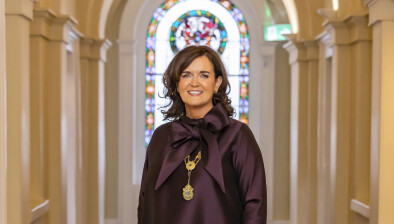Supreme Court: Plaintiff’s expert witness excluded from case due to previously advising defendant in separate proceedings

The Supreme Court has ruled that an expert witness retained by a plaintiff in competition proceedings should be excluded from the case on the basis that he had previously provided advise to the defendant in separate proceedings.

About this case:
- Citation:[2021] IESC 58
- Judgment:
- Court:Supreme Court
- Judge:Mr Justice Donal O'Donnell
The court held that the expert would have received confidential and privileged information from the defendant in the other cases and it was therefore not appropriate to allow him to be retained by the plaintiff.
Delivering judgment in the case, Mr Justice Donal O’Donnell held that the appropriate legal test was whether there was a real and sensible risk of disclosure by the witness. The court rejected a submission by the plaintiff that the likelihood of disclosure had to be proven on the balance of probabilities.
Background
The plaintiffs in the case, Shay Sweeney and Limerick Private Limited, had previously been involved in negotiations with the defendant, VHI Ireland, regarding the provision of cover for VHI customers at a future private hospital in Limerick City. VHI refused to provide cover on the basis that new hospital beds were not necessary and the negotiations ended in 2014.
In 2015, the plaintiffs issued proceedings against VHI claiming that it had abused a dominant position in the market. The plaintiffs retained an economic expert, Professor Moore McDowell, to act and advise in their case.
At an early stage, the defendant objected to Prof McDowell being retained in the case because he had previously involved in two other cases as VHI’s expert. The other proceedings also involved allegations that VHI abused a dominant position in relation to plans for private hospitals in Cork and Dublin.
The defendant later issued a motion seeking to prevent Prof McDowell from giving expert evidence in the case. It was argued that Prof McDowell had been in receipt of privileged and confidential information in the previous cases and that this created an unfairness to the defendant.
The motion was refused in the High Court, although the judge required an undertaking from Prof McDowell that he would not disclose any confidential information to the plaintiff from the previous proceedings. The court held that the test for the exclusion of an expert was whether it was likely that the expert would be unable to give their evidence without reliance on privileged information.
The Court of Appeal overturned the High Court and granted an order excluding Prof McDowell from the case. The court considered several judgments from other jurisdictions and held that the proper test was whether there was a real risk of disclosure in the case (Prince Jefri Bolkiah v. KPMG [1999] 2 A.C. 222).
The plaintiffs appealed the decision to the Supreme Court, claiming that there was “no property” in a witness and it was inappropriate for the defendant to exclude Prof McDowell (Harmony Shipping Co. v. Saudi Europe [1979] 1 W.L.R. 1380). The plaintiffs relied on the independence of expert witnesses and their obligations to the court, while the defendant argued that Prof McDowell was irreconcilably conflicted in the proceedings.
It was also noted that there were additional factual issues in the case, including that the defendant had not specified the information which it considered confidential and, further, that it had been several years since Prof McDowell had advised the defendant.
Supreme Court
The court began by noting that although the case dealt with the entitlement of an expert to give evidence, there were a number of related issues in play. These included whether an expert owed a fiduciary duty to a client, the question of conflict of interest, the possibility of a contractual duty to avoid conflict and the obligations owed to a court.
However, the court emphasised that the primary issue was whether the Court of Appeal was correct to apply a test of “real and sensible risk” to disclosure of confidential information. The court noted that, due to the nature of the case, Prof McDowell’s expertise as an economist was essential and he would be heavily involved in the plaintiff’s case.
After making a number of preliminary observations about the nature of the case and the issues which fell to be decided, the court considered the case law on expert evidence and disclosure. In its analysis of each case, it was clear that there were divergent approaches taken by different courts to expert witnesses (see Wheeldon Brothers Waste Ltd. v. Millennium Insurance Company Ltd. [2017] EWHC 218 (TCC); Secretariat Consulting PTE Ltd. & Ors. v. A Company [2021] EWCA Civ. 6).
However, despite the differences in facts and remedies in the case law, the court held that a consistent pattern emerged. The court held that relief tended to be granted based on the “degree of involvement of the person in the trial preparation and the extent of their exposure to privileged and confidential information, and the thinking of the client and its advisors.”
There was therefore a clear distinction in the case law between cases where an expert received extensive confidential information from a client and cases where they did not. As such, the court held that it was wrong to determine the case on the likelihood of disclosure by Prof McDowell.
However, the court also noted that the Bolkiah case went too far as it suggested that an expert should be excluded if they possessed any information which might have been relevant. Rather, the correct approach was the test applied by the Court of Appeal, which assessed whether there was a real and sensible risk of disclosure in the case (see Protec Pacific Pty v. Cherry [2008] VSC 76).
In the present scenario, the VHI had provided Prof McDowell with a detailed brief and 14-page cover letter involving confidential information in the previous cases. The instructions referred to the highly sensitive nature of the information. It was also accepted that Prof McDowell would have been heavily involved in the running of the previous defences and exposed to the corporate thinking of the client. Accordingly, the court did not consider that the VHI had to identify any specific confidential information to succeed in the motion.
It was noted that any lawyer who was provided with a 14-page cover letter in the previous proceedings would not have been able to accept instructions in the matter.
Conclusion
The court refused the appeal and upheld the Court of Appeal’s decision to exclude Prof McDowell from the case. In reaching this decision, the court made no negative assertion of Prof McDowell’s independence or expertise.
Further, the court noted that the issue was decided solely on the basis of the risk of disclosure of confidential information and the significant overlap with the previous cases. Accordingly, the court declined to rule on the broader aspects of the case, such as the fiduciary duty owed (if any) owed by an expert to a client.











